Costs Recovery By-laws Under the Microscope
- Home
- Costs Recovery By-laws Under the Microscope

Introduction
In the realm of strata law, by-laws play a pivotal role in governing the rights and responsibilities of lot owners and the Owners Corporation. These by-laws, while essential, must be drafted with precision, fairness, and in accordance with the Strata Schemes Management Act 2015 (SSMA). Two recent decisions by the Civil and Administrative Tribunal of New South Wales shed light on the intricacies and challenges surrounding the validity of by-laws, offering valuable insights for Owners Corporations and lot owners alike. In this article, we delve deep into the cases of Nikitopoulos v The Owners – Strata Plan No 52311 and Owners – Strata Plan No. 77109 v Gokani-Robins Pty Ltd, exploring the background, key issues, legal arguments, and the Tribunal’s decisions. Through a comprehensive analysis, we aim to highlight the key takeaways and implications of these decisions for Owners Corporations.
Understanding the Implication of the Tribunal Decision: Nikitopoulos v The Owners – Strata Plan No 52311 [2023] NSWCATCD 83
Background
In the recent case of Nikitopoulos v The Owners – Strata Plan No 52311, the Civil and Administrative Tribunal was tasked with evaluating the validity of certain resolutions and by-laws passed by an Owners Corporation. The case revolved around the Applicant, the owner of Lot 2 in Strata Plan No 52311, who lodged an application with the Tribunal seeking various orders to resolve a dispute with the Owners Corporation.
By-laws Challenged
The core of the dispute centred around two special by-laws, Special By-law 4 (SBL 4) and Special By-law 5 (SBL 5). These by-laws pertained to the recouping of legal and administrative costs. The Applicant argued that these by-laws were invalid, asserting that they were either beyond the power of the Owners Corporation to make or were harsh, unconscionable, or oppressive.
Section 150 of the Strata Schemes Management Act 2015
Under Section 150 of the Strata Schemes Management Act 2015 (SSMA), the Tribunal has the authority to declare a by-law invalid if it is not made in accordance with the Act. This section was pivotal in the Applicant’s argument against the validity of SBL 4 and SBL 5.
Arguments For and Against the By-laws
The Owners Corporation argued that the by-laws were necessary to ensure that all lot owners contributed fairly to the legal and administrative costs incurred by the Owners Corporation. They contended that these costs were a direct result of the actions of certain lot owners, and as such, it was only fair that those owners bear the brunt of those costs.
The Applicant, on the other hand, argued that the by-laws were not only invalid but also discriminatory. He believed that they were specifically targeted at him due to his ongoing disputes with the Owners Corporation. Furthermore, he argued that the by-laws were harsh and oppressive, placing an undue financial burden on certain lot owners.
Tribunal’s Decision and Reasoning
The Tribunal, after careful consideration, declared both SBL 4 and SBL 5 invalid from the date of registration. In its reasoning, the Tribunal found that the by-laws were not made in accordance with the SSMA. Specifically, the by-laws were deemed to be harsh, unconscionable, and oppressive. The Tribunal noted that while Owners Corporations have the power to make by-laws, such by-laws must be fair, just, and not target specific lot owners.
Key Takeaways for Owners Corporations
Owners Corporations must ensure that any by-laws made are in accordance with the SSMA. This includes ensuring that by-laws are not harsh, unconscionable, or oppressive.
By-laws should be made with the interest of all lot owners in mind. They should not target specific lot owners or place an undue burden on certain individuals.
Lot owners have the right to challenge by-laws they believe to be invalid. As seen in the Nikitopoulos case, the Tribunal has the authority to declare by-laws invalid if they are not made in accordance with the SSMA.
In conclusion, the decision serves as a crucial reminder to Owners Corporations about the importance of fairness and legality when making by-laws. It underscores the need for transparency, fairness, and adherence to the SSMA in all dealings.
Understanding the Implication of the Tribunal Decision: Owners – Strata Plan No. 77109 v Gokani-Robins Pty Ltd
Background
The case revolves around the validity of a specific by-law, Special By-law 17 (SBL 17), which was declared invalid by the Tribunal. The basis for this declaration was that the by-law was deemed harsh, unconscionable, or oppressive.
The By-law in Question
SBL 17, titled “Failure to comply with By-Law and Recovery of Costs,” outlined the consequences for an Owner or Occupier who failed to adhere to the obligations under the Strata Schemes Management Act and other related by-laws. The by-law allowed the Owners Corporation to recover costs related to enforcement and rectification. It also provided the Owners Corporation with the right to enter an Owner’s property to carry out necessary works and specified the conditions for such entry.
Key Issues
- The validity of SBL 17.
- Whether the by-law was harsh, unconscionable, or oppressive.
- The implications of declaring the by-law invalid.
The Law
The case primarily relied on sections 139(1) and 150 of the Strata Schemes Management Act 2015 (SSMA). Section 139(1) states that a by-law must not be harsh, unconscionable, or oppressive. Section 150 provides the Tribunal with the authority to declare a by-law invalid if it deems that the by-law violates the provisions of section 139(1) or if the owners corporation did not have the power to make the by-law.
Arguments For and Against the By-law
The arguments for the By-law were:
- The by-law was necessary to ensure compliance with the obligations under the SSMA.
- The by-law provided a clear framework for recovering costs related to enforcement and rectification.
The arguments against the By-law were:
- The by-law was deemed to be harsh, unconscionable, or oppressive.
- The by-law gave excessive powers to the Owners Corporation, including the right to enter an Owner’s property without adequate checks and balances.
Tribunal’s Decision and Reasoning
The Tribunal declared SBL 17 invalid on the grounds that it was harsh, unconscionable, or oppressive. The Tribunal highlighted the excessive powers granted to the Owners Corporation and the lack of adequate checks and balances as primary reasons for this decision.
Conclusion
By-laws that are deemed harsh, unconscionable, or oppressive can be challenged and declared invalid, as seen in this case.
A key takeaway for Owners Corporations is that By-laws should be drafted with care, ensuring they are in line with the provisions of the SSMA.
How We Can Assist You
For Owners Corporations and lot owners, these Tribunal decisions serve as a reminder of the importance of having well-drafted by-laws in place. If you’re considering drafting new by-laws, amending existing ones, or if you have concerns about their validity or enforceability, Pobi Lawyers is here to assist. We can review and advise on your current by-laws, provide guidance on cost recovery by-laws, and draft new by-laws that align with both legal requirements and the specific needs of your strata scheme.
Disclaimer:
This commentary is published by Pobi Lawyers for general information purposes only and should not be relied upon as specific legal advice. You should obtain your own legal advice specific to your circumstances before you take any action or otherwise rely upon the contents of this article. The content of this article is subject to change.




